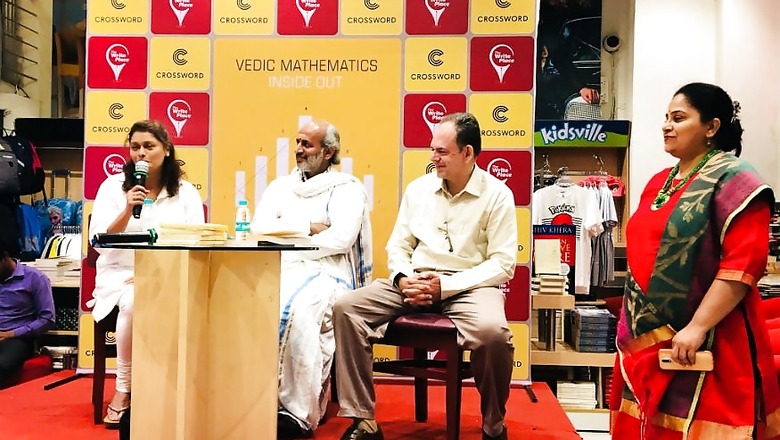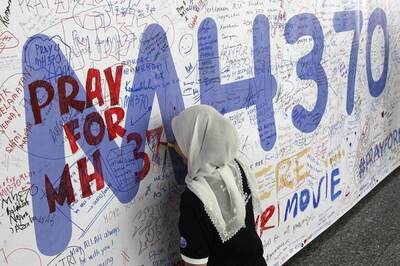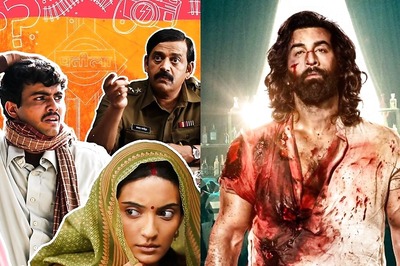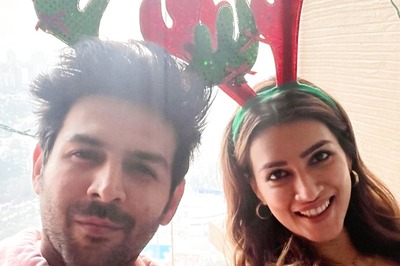
views
New Delhi: If numbers are the true measure of popularity and success, then Indic gatherings seem to be on the right track. The Indic Book Club gatherings “celebrate the continuity of Indian Civilisation". They began their operations online in 2014 and transitioned to in person debates in 2015.
In 2016, the Indic Academy by Hari Kiran Vadlamani, an entrepreneur based out of Singapore, had seven Indic Book Clubs in India with plans to open more.
"By the time we reach 2019, we will have 50 branches across India. We are growing exponentially,” said an insider of the Indic Academy on the growth story of Indic Social life in the physical and virtual space.
Sharing the common cause of “Indian Civilisation talks and promoting Indic values,” is Srijan Foundation founded by Rahul Dewan, whose full-time day job is to run a software company. He holds three Indic gatherings in a month. The popularity is increasing, especially online.
His Foundation came into existence in 2005, it focused on social work and only recently, since 2015, they started holding Indic discussions.
What They Talk About?
It was June 3, 2018 when INTACH in Delhi played host to Ramprasad Soghal, who is a technocrat with 20 years of experience in IT industry. He held a discussion on two topics organised by Srijan Foundation. “Modern numerals have their source in India – Kannada and not in Arabia.” The second topic being: “Qutub Minar was astronomical observatory not a minaret built by Qutub-Uddin- Aibak.”
Soghal pursued Vedic Science and Astronomy out of interest and started a Facebook page called “Credible Indian History” and with organisations like Srijan Foundation committed to celebration of “continuity of Indian Civilisation”, gave a platform to his interest. He comes, delivers lectures and also sets the online buzz.
This was one of the three planned discussions held in the month of June. In April, the Foundation held discussion with founders of Anandvan Bhakta Samudaya, Varanasi, Mugendra and Suvrata Vinod on the “Geography of Sarasvati and Aryavarta – in the Epoch of Vedic Ritualistic Manuals”.
The Indic Academy’s Indic Book Clubs has been around since 2015. In its new avatar, the IBC is now reaching out to teens through their new program Indic Teen Fest. It is designed to take Indic values to the young as early as possible.
There are games, talks and events to introduce the teenagers to the contribution of India to various fields. “It will touch on the impact made by Indian culture around the world, the power of India’s unique ancient knowledge, and how it can be applied in a globalised world,” said one of the members of IBC.
The organisers lined up interactions with the “scholars, political leaders, artistes and other experts, who would be ideal role models for attendees” – like Sanjeev Sanyal, Principal Economic Adviser in the Ministry of Finance; Hindol Sengupta, Authour; Madhu Kishwar, Academic; Rajat Sethi, India Foundation scholar, among other scholars.
Occupying the Physical space for their idea of India
Vadlamani’s Book Club has no membership fee, unlike the Rotary or the Press Club that calls people who have done work on Indic values. The Book Club is reaching the sections and regions where they feel the need to instil the Indic values.
They work to assure the continuity of the people in the gathering, which the organisers are hopeful of achieving in few months, as Indic gatherings is a new idea.
“The purpose was to get people together in actual physical meetings. This shall make them write better on Indian history. People with right leanings found the narrative lopsided and to balance it, the Indic Book Clubs encourage writing and better reading of Indian civilisation. We need physical gathering to present argument on Indian Civilisation,” said Vadlamani.
On a good day, Dewan’s Foundation holds three talks in a month. In his after-office hours and on weekends, he spends significant time on working on projects related to Indian Civilisational issues.
Answering why organisations such as Indic Book Clubs, Srijan Foundation or People for Dharma, are cropping up around the country and asserting their physical presence, he said, “That’s because India did not come into existence after 1947.” In his opinion, “While the current India is a nation-state, there is a civilisational nation, which exists in the minds and hearts of the people of this country,” said Dewan.
He believes that the “understanding and affinity with India for Hindus is civilisational believing in continuity while for others like Christians and Muslims it is about the Constitution and nation-state,” Dewan added.
“There is some awareness among people of India desiring to work towards and spend their money on Indic causes. The sentiment has always existed but what has improved is access to money and social media, we are all connecting - perhaps like never before,” he said.
There are new speakers around the country working on topics of rebuilding our lost civilisational values and discourse.
“Organisations, like ourselves, are simply giving a platform to them,” he added.
On the other hand, the Indic Book Club enables “public intellectuals discover their potential, transform them as “Thought Leaders” on Indic values.

















Comments
0 comment